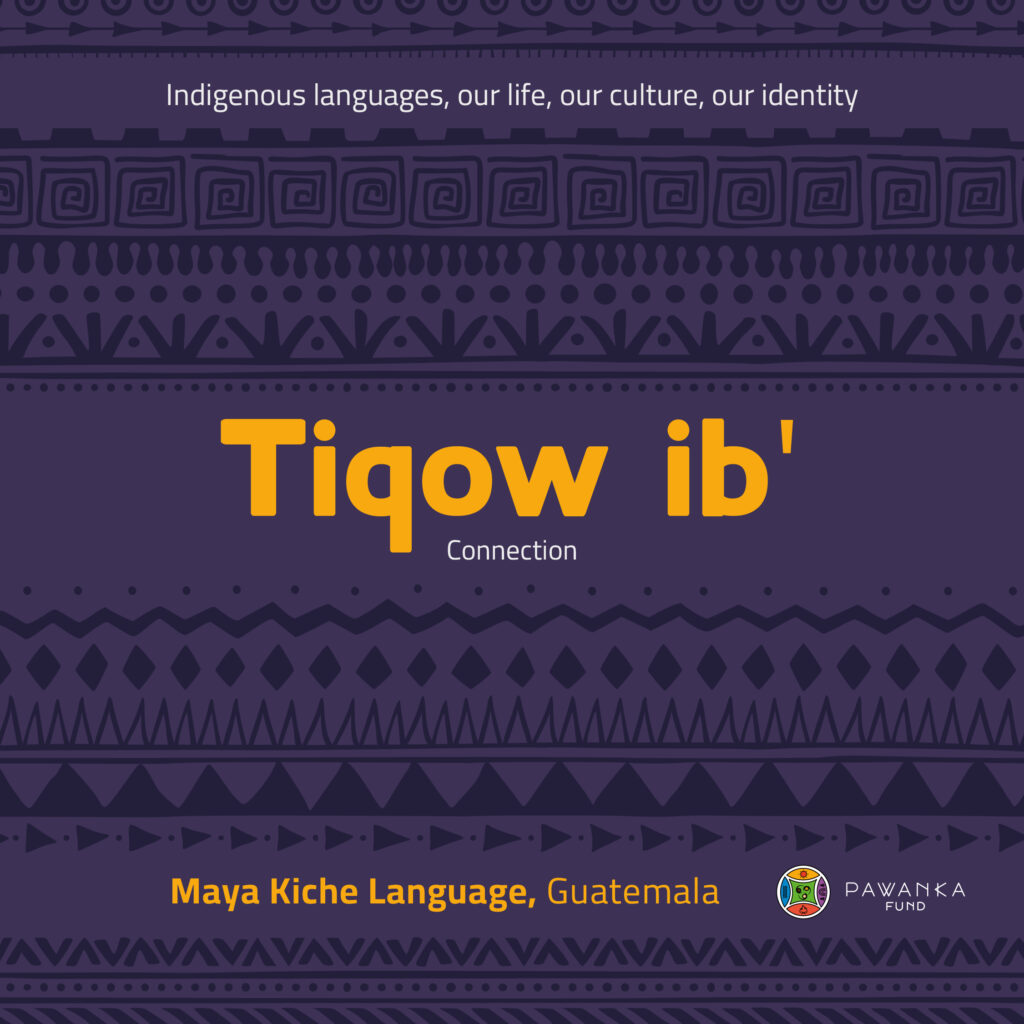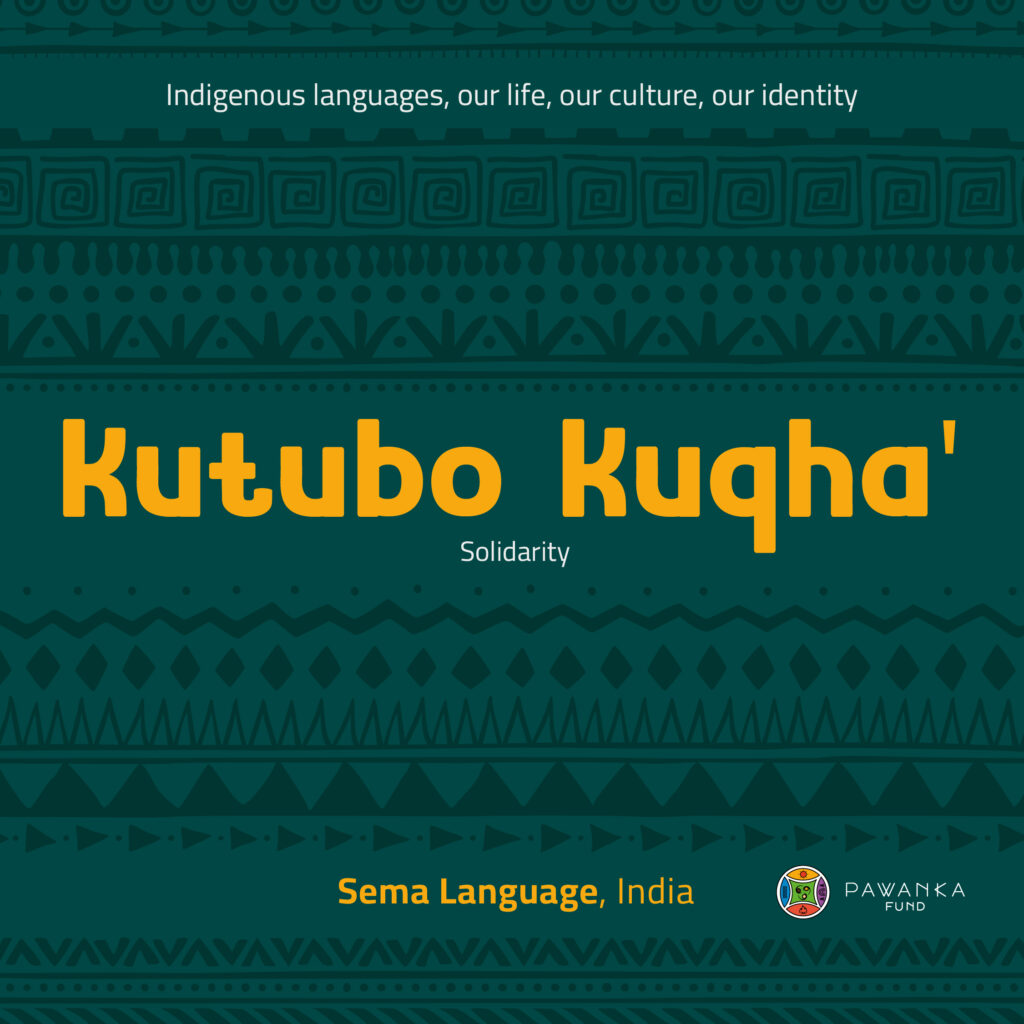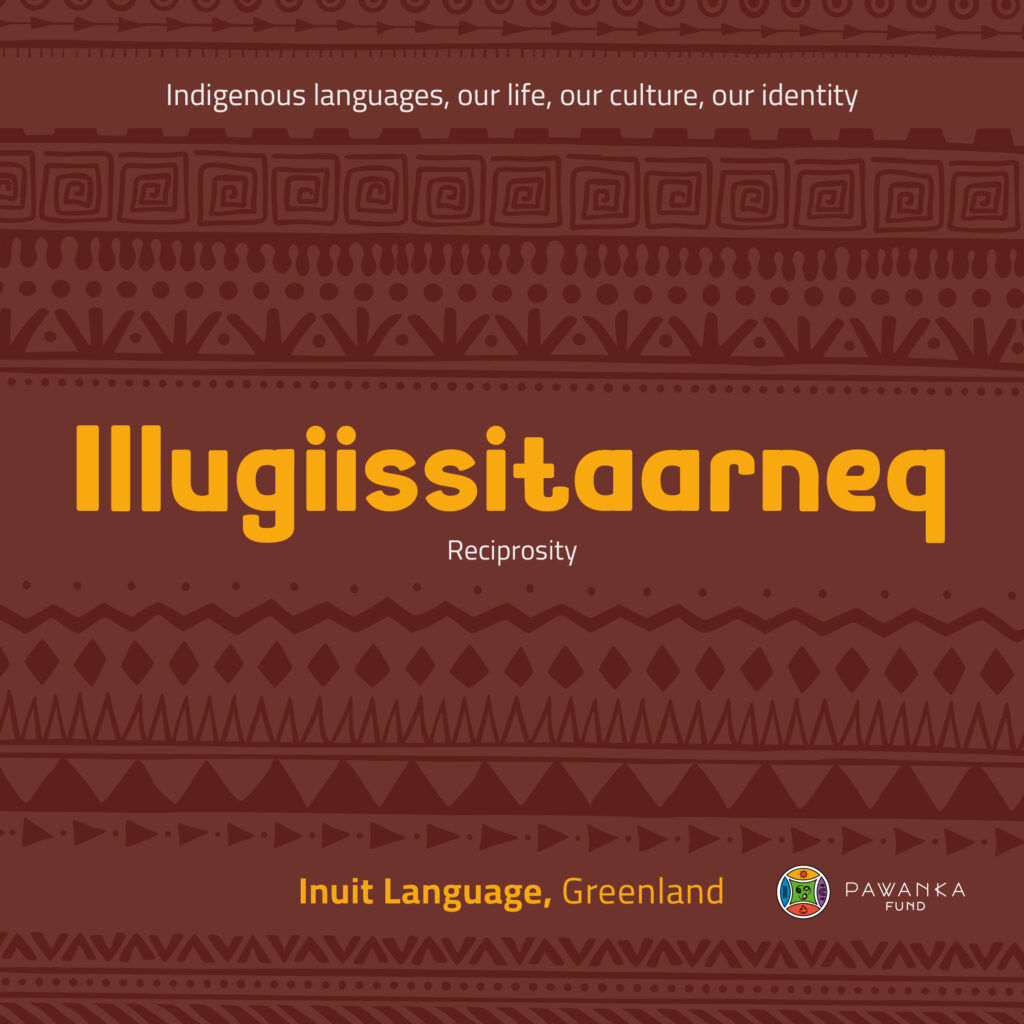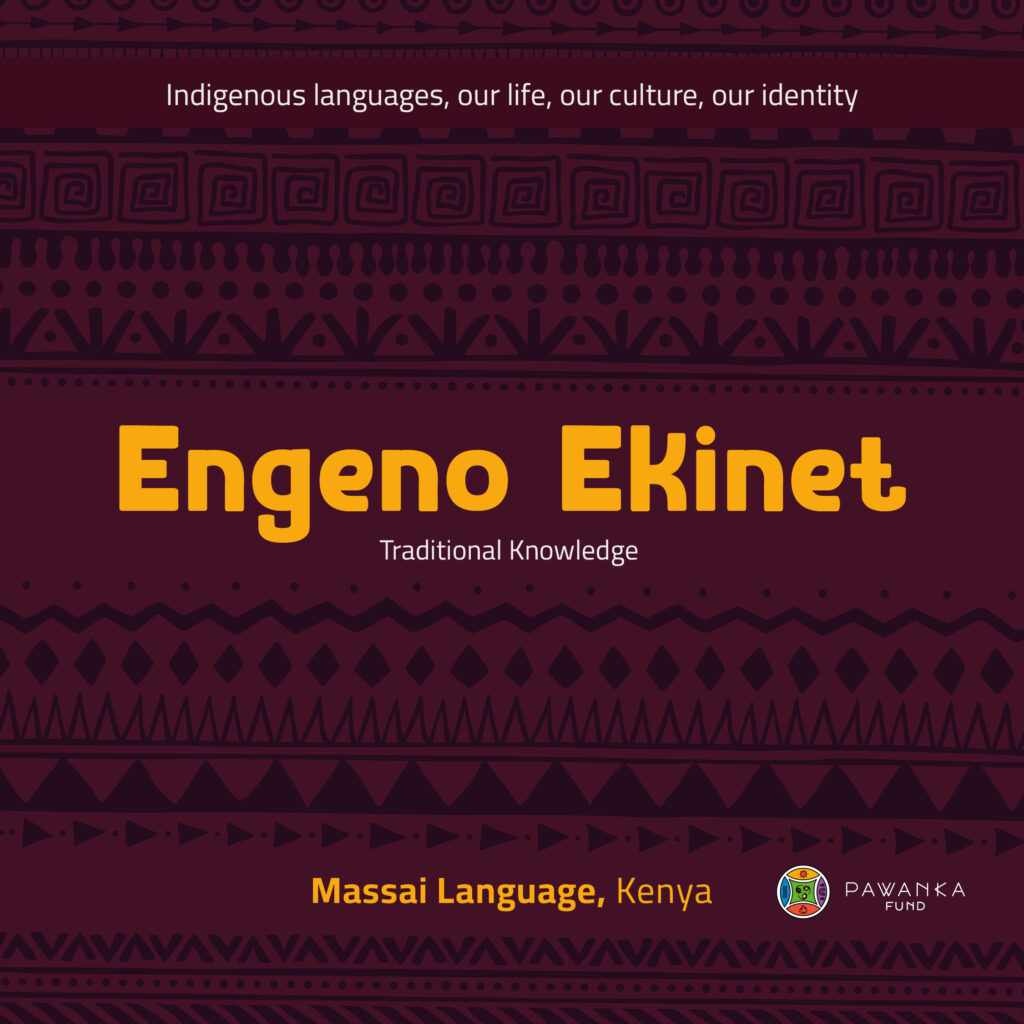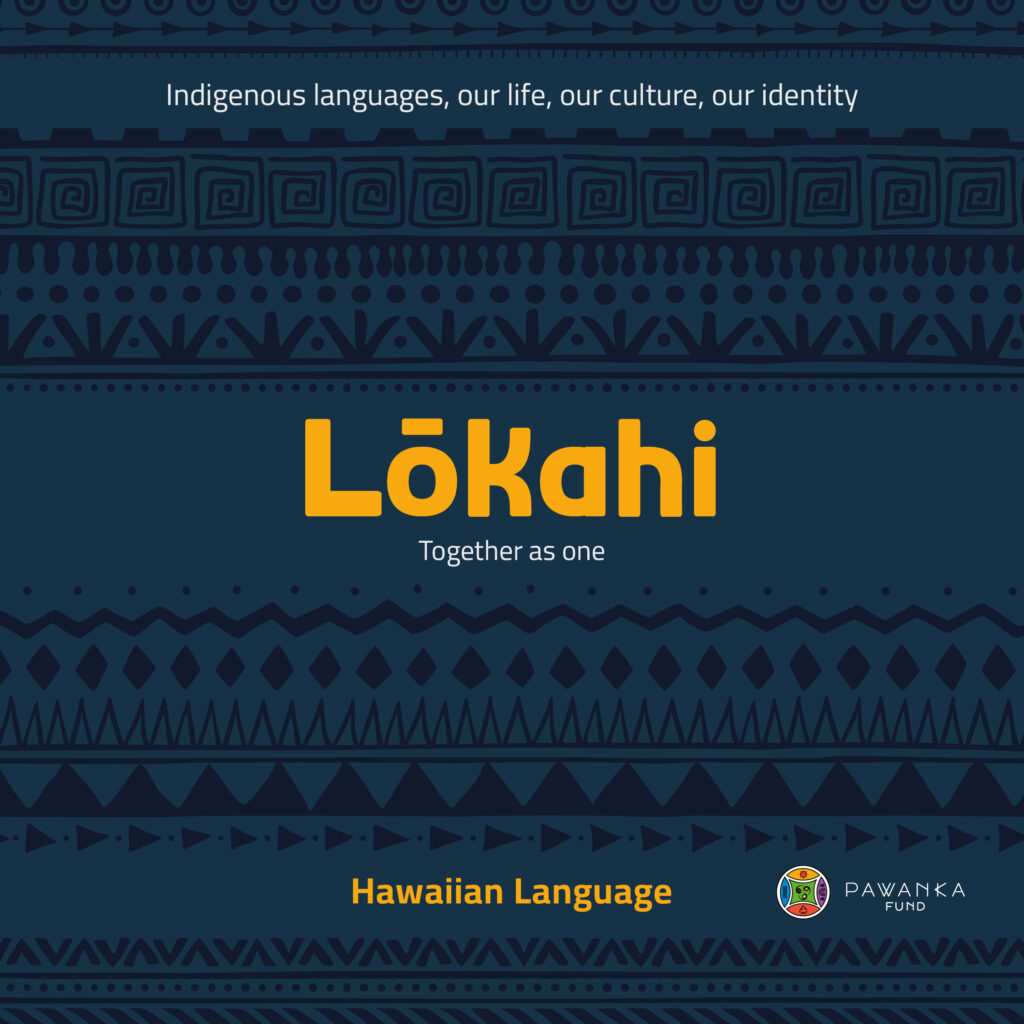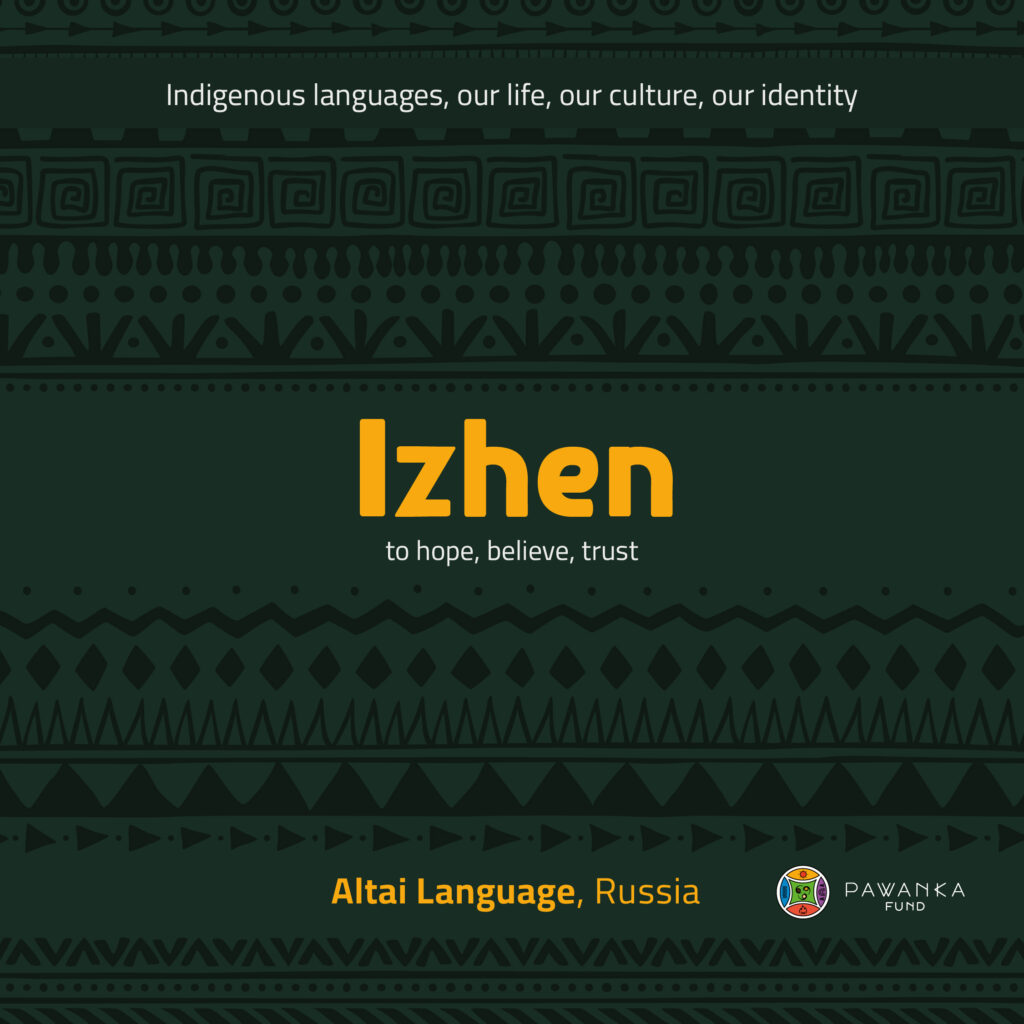Language is more than a means of communication, it is nature and the world we inhabit, it is collectivity, it is being part of a community, of a history. Language is the possibility of sharing a cosmovision, of giving continuity to our ancestors and sharing knowledge, recipes, wisdom, sensations and emotions. It is the soul and life of our peoples.
Although indigenous peoples speak more than 6,700 of the nearly 7,000 languages in the world, it is estimated that an indigenous language dies every two weeks1. When an indigenous language disappears, a unique body of environmental, technological, social, economic and cultural knowledge that its speakers have codified and accumulated over millennia inevitably disappears.
There are many causes that contribute to the disappearance of indigenous languages, such as economic and social exclusion, political conflicts, forced relocations, lack of legal recognition and indigenous rights. All this causes difficulties for the intergenerational transmission of languages.
Pawanka we recognize the immense value of preserving indigenous languages and contribute to the International Decade of Indigenous Languages proclaimed by the United Nations, from 2022 to 2032.
We therefore support 26 language revitalization projects, of which 13 have been completed and 13 are still in progress. These projects are carried out in 18 countries, working with more than 44 indigenous languages in vulnerable situations, at least 11 of which are in danger of extinction. In Pawanka we are aware that there is no one recipe for revitalizing our languages; each partner has determined the best way to revitalize and preserve their language. Below we share the most common strategies:
Educational:
- Intergenerational learning.
- Coordination with universities for the dissemination and implementation of indigenous language programs.
- Training of indigenous communicators.
- Training of bilingual teachers.
- Classes for parents to speak to their children in their indigenous language.
- Use of toponyms in indigenous communities and ancestral territory.
Creation of tools:
- Creation of dictionaries.
- Documentation of the language through videos, recordings, written material for its dissemination and learning among young people.
- Development of the writing system of several indigenous languages, which makes it possible to reduce the vulnerability of these languages.
- Systematization of the language, coordination with linguistic specialists.
Language through culture:
- Strengthening cultural identity, rites of passage and language have strengthened the intergenerational bond.
- Workshops to learn how to make cartoons in the indigenous language.
- Rescue of dances, oral traditions, cultural expressions such as poetry and others in indigenous languages.
Creation of spaces:
- Language nests, where the language is taught to babies and infants in the first stage of development.
- Construction of educational spaces for children to learn in their mother tongue.
Communication and dissemination:
- Boosting the broadcasting of programs on community radio and social networks.
- Development of radio and television programs in indigenous languages.
- Use of phone applications in indigenous languages.
- Information dissemination strategy in the context of Covid 19: includes news, data and analysis on the situation of peoples and communities in the face of the pandemic.
- Use of social networks in indigenous languages.
- Publication of material in indigenous language.
Articulators:
- Articulation with the formal education system for the use of the language.
- Articulation with state agencies for the support and dissemination of language programs.
- Articulation with academic institutions for the documentation of the language and development of alphabets.
Pawanaka is not only an organization that fights to preserve indigenous traditional knowledge, it is also a space for meetings between indigenous organizations and exchange. Therefore, we organize meetings between indigenous peoples to exchange ideas, experiences, lessons learned and strategies. We analyze and share this information, fostering a process of mutual learning.
We cannot ignore the global call for attention to the critical situation of many indigenous languages and with the proclamation of this Decade, let us join efforts and work tirelessly to guarantee the right of indigenous peoples to preserve, revitalize and promote ourtheir languages and to incorporate aspects of linguistic diversity and multilingualism.
All interested parties are invited to register here and share information, work, events, activities, resources and tools to connect with a global community to support indigenous languages around the world.
